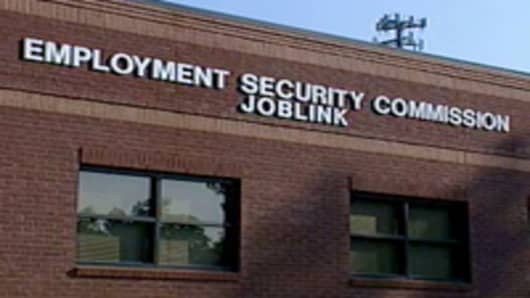Congressional Democrats on Thursday made headway on their top legislative priority—job creation—when the House of Representatives approved a $15 billion package of tax credits and highway construction.
The 217 to 201 vote gave Democrats a much-needed victory after weeks of delay caused by Republican tactics, a record-setting snowstorm and internal bickering.
More job-creation efforts are in the pipeline, House Speaker Nancy Pelosi said.
"Today's legislation is ... one key element of our agenda to get Americans back to work and strengthen our economy," Pelosi said on the House floor.
The Senate passed the bill last week, but will have to approve it again before President Barack Obama can sign it into law because the House modified it to satisfy the concerns of centrist Democrats and black lawmakers.
The Senate will probably take up the bill next week after it finishes work on a much larger jobs package, a Senate aide said.
The measure extends federal highway programs through the end of the year. Some Democrats, especially those representing minority districts, feel the approximately $35 billion jobs bill is too puny.
However, the pressure is on to create jobs and deliver a badly needed win for President Barack Obama and a Democratic Party struggling in opinion polls and facing losses in upcoming elections. Further jobs measures are promised.
"It's really not a jobs bill," said Rep. Barbara Lee, D-Calif. "It's one small piece." Lee said she instead wants money for job training and youth summer jobs.
The House had passed a far larger measure in December that contained almost $50 billion in infrastructure funding, $50 billion in help for cash-starved state governments, and a six-month extension of jobless aid.
The Senate responded last week with the far smaller measure that the House is reluctantly accepting. The House amended the measure Thursday to conform with so-called pay-as-you-go budget rules that have become an article of faith among moderate Democrats.
The rules require future spending increases or tax cuts to be paid for with either cuts to other programs or equivalent tax increases. The minor tweak means that the notoriously balky Senate would have to act again before Obama could sign it into law.
The $35 billion bill—blending $15 billion in tax cuts and subsidies for infrastructure bonds issued by local governments with the $20 billion in transportation money—is far smaller than the massive economic stimulus bill enacted a year ago.
Across the Capitol, the Senate is debating a far more costly measure to clean up a lot of unfinished business from last year. The $100 billion-plus bill would extend unemployment assistance, revive a bevy of expired tax breaks, help states with soaring Medicaid costs and prevent doctors from having to absorb big cuts in Medicare payments.
The popular initiatives are traditionally extended on a bipartisan basis for brief periods of time, which hides their long-term costs.
The Senate plans to act on the jobs bill after wrapping up the unfinished-business bill, which means it probably won't be sent to Obama until next week.
The jobs bill contains two major provisions. First, it would exempt businesses hiring the unemployed from the 6.2 percent Social Security payroll tax through December and give them an additional $1,000 credit if new workers stay on the job a full year. The Social Security trust fund would be reimbursed for the lost revenue.
Second, it would extend highway and mass transit programs through the end of the year and pump in $20 billion for the spring construction season. The money would make up for lower-than-expected gasoline tax revenues.
Several lawmakers in both parties criticized the payroll tax break, saying that it wouldn't do much to create jobs and that the bulk of it would go to employers for new hires that would be made anyway.
"It simply encourages conduct that would occur anyway," said Lloyd Doggett, D-Texas.
Rep. Steve LaTourette, R-Ohio, said he asked businessmen at town meetings in his Rust Belt district whether they would hire people based on the payroll tax holiday. "Nobody raised their hands," LaTourette said. "This is not going to create one job."
"It's an insipid, weak piece of legislation," said Jim McDermott, D-Wash.
But economists such as Mark Zandi of Moody's Economy.com say the new hiring tax credit could spur creation of about 250,000 new jobs. The economy has shed 8.4 million jobs since the recession began in December 2007.
- Slideshow: Ten Best Jobs in US


